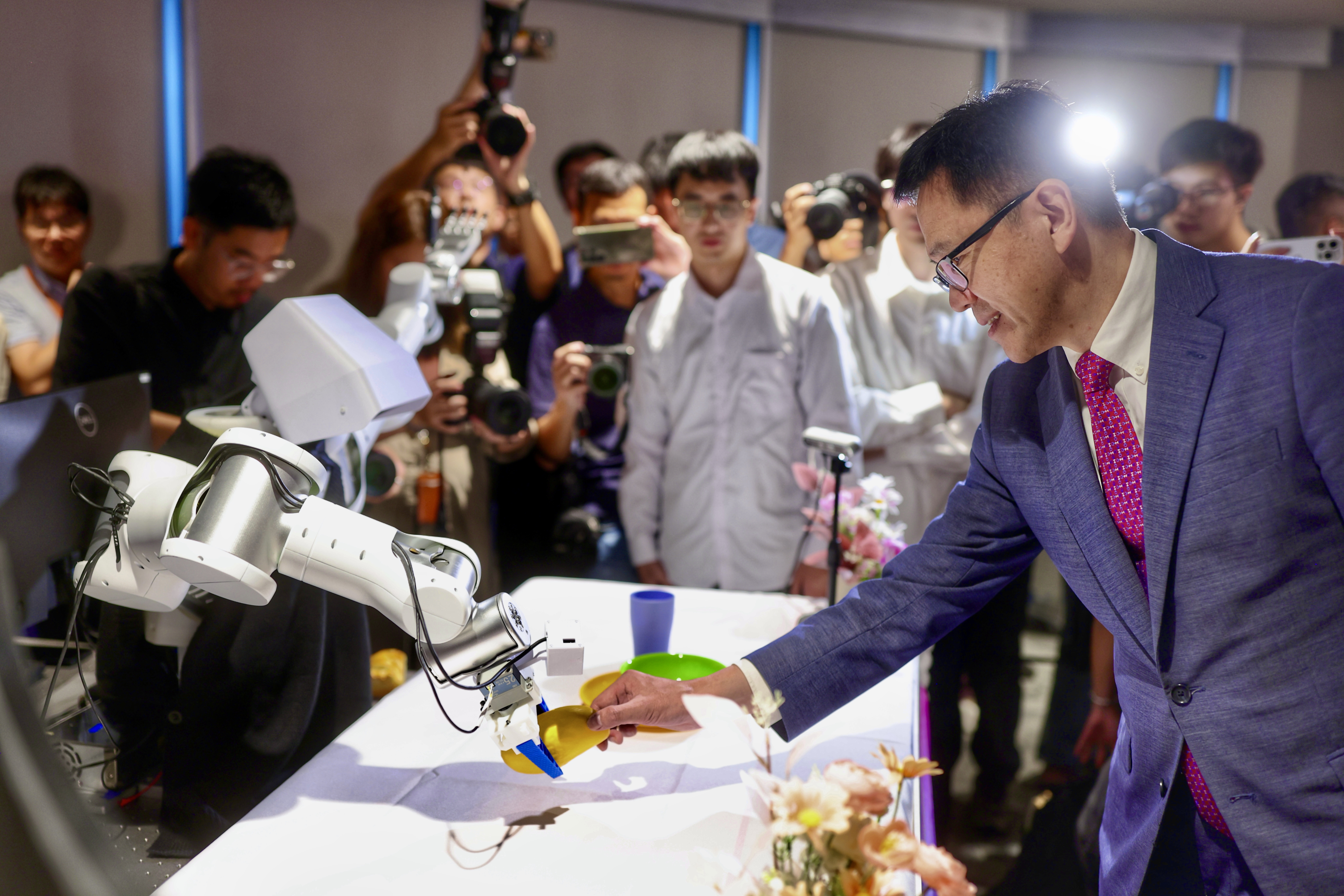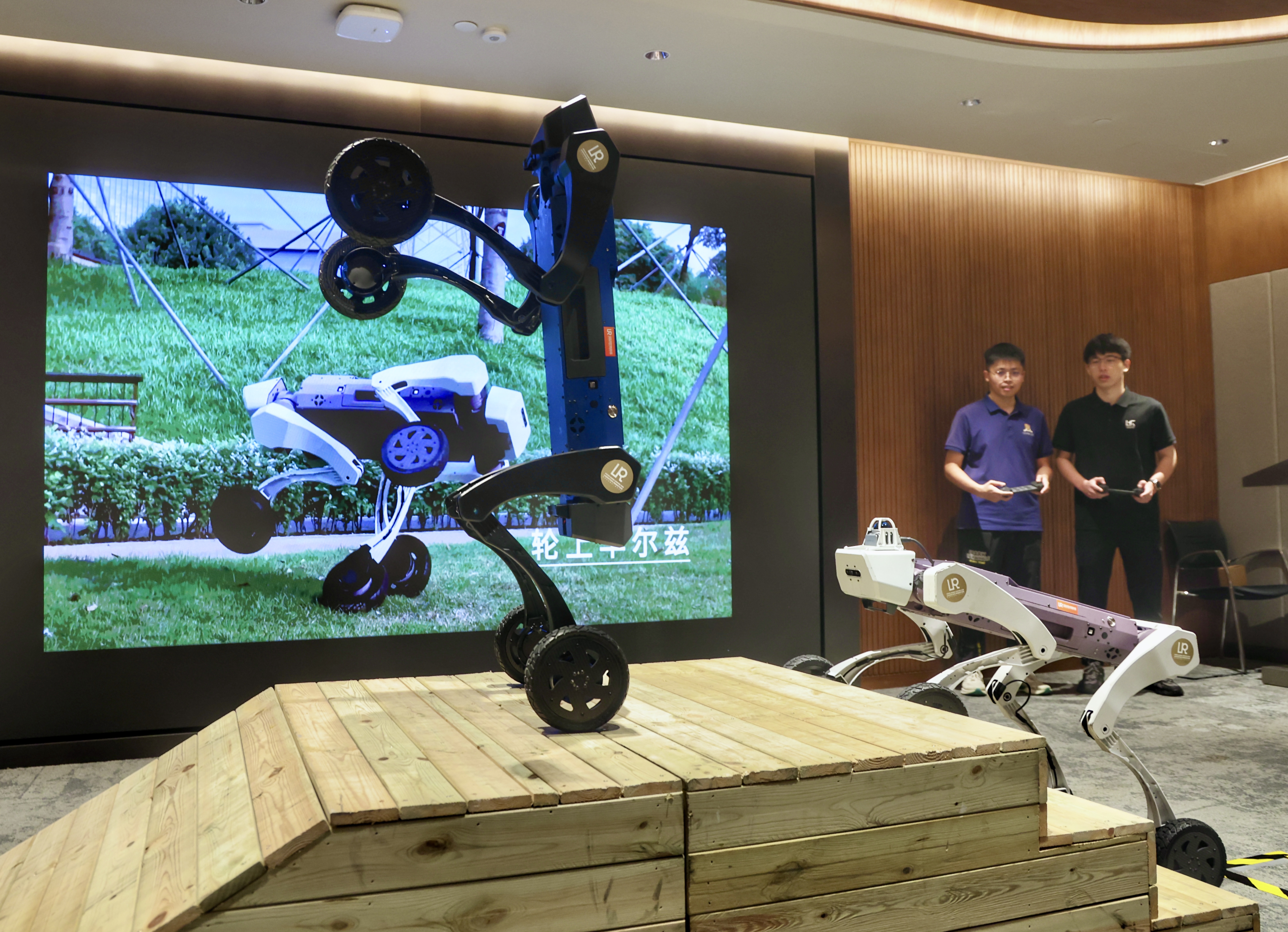
Hong Kong unveiled its first home-grown artificial intelligence quadruped robot and a dual-arm operating system on Monday.
The amazing inventions are set to be widely applied to logistics, retail, automation industry and other sectors.
The new embodied AI droids, which can work side by side in one system, were developed by The Chinese University of Hong Kong's Hong Kong Centre for Logistics Robotics (HKCLR), an InnoHK-supported research center focused on advancing robotics and AI for the logistics industry.
The quadruped robot — named LY1 — is relatively small and its agility allows it to work in complex environments. It can independently traverse rugged and challenging terrain.
The dual-arm system, driven by a vision language model, is able to respond to real-time situations with its ability to comprehend languages and perceive the environment. It can provide assistance in scenarios such as home, industrial and logistics. In particular, it is able to enhance the efficiency of logistics and warehousing and achieve flexible handling of goods and human-robot collaboration, benefiting the development of a smart city.
The dual-arm system can also automatically sift and transport goods, reducing reliance on human interaction. It can help supermarkets or unstaffed retail shops to replenish inventory and execute orders.
At the unveiling ceremony, Secretary for Innovation, Technology and Industry of Hong Kong Sun Dong, said that the new technology and products are closely aligned with the Hong Kong Special Administrative Region government's strategy to prioritize the development of the artificial intelligence and robotics industries, demonstrating the fruitful collaboration between the government, industry, academia and research institutions.

He said he hoped that HKCLR and other centers from InnoHK can continue leveraging Hong Kong's scientific strengths to drive the practical application of more breakthrough technologies.
The government will persist in its multi-pronged approach to create favorable conditions for innovation and technology, in the hope of building Hong Kong into an international hub for innovation and technology, Sun noted.
Liu Yunhui, director of HKCLR, outlined the center’s achievements in the robotics industry, including inventing Hong Kong’s first robot dog, and DepthSight-ST camera, the world’s first industrial-grade 3D camera based on an AI model. Over the past few years, the center has incubated four companies, Liu added.
Liu noted that the products developed by the center focus more on practical areas. He said he hoped that the achievements of the center, such as the dual-arm platform, can be applied to service industries and areas such as supermarkets, to reduce labor costs and improve efficiency.
The robotics industry has great potential, and as an international city, Hong Kong can serve as a bridge to develop overseas market, he said.
Liu revealed that the robots took the center three to four years to develop and its cost would be lowered to HK$100,000 ($13,000) with a mass production of over 10,000. He also noted that the quadruped robot exhibits a 20-30 percent higher load capacity and battery life, while heat generation is reduced by one third. He said he expected the droids would be available on the open market in one to two years.
Echoing Liu, He Kejing, technical director of AIeveR Robotics Limited — developer of the DepthSight-ST camera — said that this series of products already have various applications, such as automated robot retrieval and inspection of automotive die-cast components. The latest model DepthSight-ST camera is scheduled to be released in December.
Currently, InnoHK has established collaboration with over 30 world-renowned universities and research institutions, bringing together approximately 3,000 researchers from both local and international backgrounds.
Contact the writer at atlasshao@chinadailyhk.com


